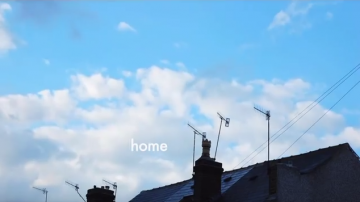Death and grief was our theme for September, marking World Suicide Prevention Day on September 10th. Here the Sheffield Flourish community share their experiences of death and grief. As always, there are stories which are honest, sometimes painfully so, but there are also reflections on what has helped.
“I’ve been told that time is a healer after you lose someone but it’s now been nearly 12 months since my Grandma passed away & 6 months since my Grandad passed away – every day is just another day I’ve not seen them, where’s the healing in that?” – Vanessa
“My son’s granny had 2 types of dementia & had a couple of strokes. She hadn’t said anyone’s name in over a year but said his in February. He wanted her to die because she was suffering & she would never have wanted to live like that. She died in May. He’s devastated & misses her” – Moon Willow
“Moving on from grief is hard. One of the things which has helped me most is keeping busy – going out, seeing friends, being in nature. I find time to be sad by myself, but try and find as much happiness as I can.” – Joanna
“My first experience of grief happened when I was 17 yrs old, when my grandfather died. My last experience of grief was a year ago this month when my friend died. There were 50 years between each experience (quite a few in-between too). One thing that has struck me is that both experiences were equally upsetting, equally shocking. Age and experience did not make my friend’s death last year any easier to deal with than my grandfather’s death 50 years earlier. Losing someone you love hurts, no matter what your age. Facing a future without that close relationship is hard to deal with. For sure, time passing does take the edge off the grief, but those moments of sadness still creep up on you and catch you unawares. What makes grief a lot easier for me to bear is my total trust in a continuation of life. An unshakeable belief that we ‘go home’ when we die. No doubt, I will lose more loved ones before I die. I know that I will grieve for them. I know that I will gradually come to terms with that grief, but best of all I know that I will have friends and family to help me through those sad times, who will be supportive, understanding, and kind, as I intend to be towards anyone I know who is suffering the loss of a loved one. I have 3 friends who have suffered through the unbearable grief of losing a child. One of the most shocking and hurtful consequences of this was that they all experienced having a long term friend turn their back on them, not acknowledge their loss and grief, because I imagine, they just did not know how to deal with it. How terribly sad that is to not be able to acknowledge a friend’s grief, to not be able to be there for them. To not be able to say ‘I do not know what to say.’” – Juliet
“I’ve only had a second-hand experience of grief, in a sense. A year and a half ago my partner lost his mum. It was only second hand because I still can’t imagine the loss he experienced (or don’t want to). At times, I felt overwhelmed by the pressure of supporting him through something so big. If I could go back in time I’d tell myself all he needs is support – there are no magic words that can make it better. Although it’s still so hard to see him in pain, I use this experience to remind myself to be grateful for the love I have in my life. If you haven’t loved someone deeply you can’t grieve for them deeply either, and I feel lucky that I have so many people I love in my life now.” – Jo
“My mum had dementia. She died 4 yrs ago. In the early days after her death it felt as though I was looking at her through the wrong end of binoculars: she moved further away each day. I’ve found there’s healing in writing. It’s helped ‘reclaim her’ from dementia” – Isobel



